
Thomas Stearns Eliot was a poet, essayist, publisher, playwright, literary critic and editor. Considered one of the 20th century's major poets, he is a central figure in English-language Modernist poetry.

Wind, Sand and Stars is a memoir by the French aristocrat aviator-writer Antoine de Saint-Exupéry, and a winner of several literary awards. It was first published in France in February 1939, and was then translated by Lewis Galantière and published in English by Reynal and Hitchcock in the United States later the same year.
The Space Trilogy or Cosmic Trilogy is a series of science fiction novels by C. S. Lewis. The trilogy consists of Out of the Silent Planet (1938), Perelandra (1943), and That Hideous Strength (1945). A philologist named Elwin Ransom is the protagonist of the first two novels and an important character in the third.
Mythopoeia, or mythopoesis, is a narrative genre in modern literature and film where an artificial or fictionalized mythology is created by the writer of prose, poetry, or other literary forms. This meaning of the word follows its use by J. R. R. Tolkien in the 1930s. The authors in this genre integrate traditional mythological themes and archetypes into fiction. Mythopoeia is also the act of creating a mythology.

Corridors of Power is the ninth book in C. P. Snow's Strangers and Brothers series. Its title had become a household phrase referring to the centres of government and power after Snow coined it in his earlier novel, Homecomings.

George Passant is the first published of C. P. Snow's series of novels Strangers and Brothers, but the second according to the internal chronology. It was first published under the name Strangers and Brothers. It was published in the U.S. in 1960.

The Farseer trilogy is a series of fantasy novels by American author Robin Hobb, published from 1995 to 1997. It is often described as epic fantasy, and as a character-driven and introspective work. Set in and around the fictional realm of the Six Duchies, it tells the story of FitzChivalry Farseer, an illegitimate son of a prince who is trained as an assassin. Political machinations within the royal family threaten his life, and the kingdom is beset by naval raids. Fitz possesses two forms of magic: the telepathic Skill that runs in the royal line, and the socially despised Wit that enables bonding with animals. The series follows his life as he seeks to restore stability to the kingdom.
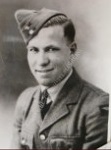
Charles Robert Cecil Augustine Allberry was an English Egyptologist and Coptic scholar. He was best known during his lifetime for his 1938 partial translation of A Manichean Psalm-Book, and posthumously as the model for C. P. Snow's character, Roy Calvert, introduced in The Light and the Dark (1947). Allberry served in the Royal Air Force in the Second World War and was shot down and killed in 1943.

Time of Hope is the first chronological entry in C. P. Snow's series of novels Strangers and Brothers, and the third to be published. It depicts the beginning of Lewis Eliot's life, with a childhood in poverty in a small English town at the beginning of the 20th century.
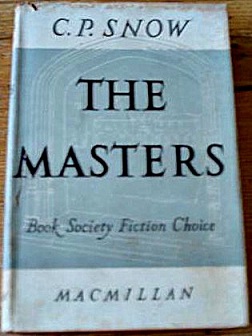
The Masters is the fifth novel in C. P. Snow's series Strangers and Brothers. It involves the election of a new Master at narrator Lewis Eliot's unnamed Cambridge College, which resembles Christ's College where Snow was a fellow. The 1951 novel's dedication is "In memory of G. H. Hardy", the Cambridge mathematician. It was the first of the Strangers and Brothers series to be published in the United States.
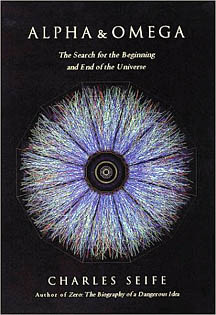
Alpha & Omega: The Search for the Beginning and End of the Universe is the second non-fiction book by Charles Seife, published by Viking, a division of Penguin Putnam, in 2003.

The 4 Percent Universe: Dark Matter, Dark Energy, and the Race to Discover the Rest of Reality is a nonfiction book by writer and professor Richard Panek and published by Houghton Mifflin Harcourt on January 10, 2011.

The Conscience of the Rich is the seventh published of C. P. Snow's series of novels Strangers and Brothers, but the third according to the internal chronology. It details the lives of Charles, Katherine and their father, Leonard March, a wealthy Jewish family. Lewis Eliot narrates the story of the conflicting politics of wealth and pre-World War II socialism in England.

Last Things is the eleventh and final installment of C. P. Snow's series of novels Strangers and Brothers.

The Affair is the eighth book in C. P. Snow's Strangers and Brothers series. The events return to the Cambridge college of The Masters. It is once again narrated by Lewis Eliot.

The Sleep of Reason is the tenth book in C. P. Snow's Strangers and Brothers series.
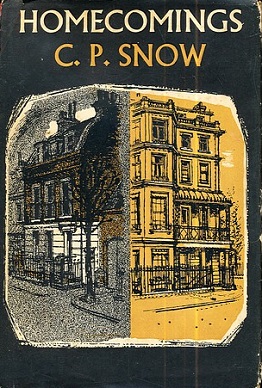
Homecomings is the seventh book in C. P. Snow's Strangers and Brothers series. The events concern the personal life of narrator Lewis Eliot.

The New Men is the sixth novel in C. P. Snow's series Strangers and Brothers.
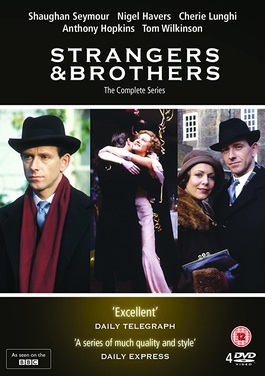
Strangers and Brothers is a 1984 British television series produced by the BBC. Adapted from the novel series of the same name by C. P. Snow, it ran for a single series of thirteen episodes.
Mandaean cosmology is the Gnostic conception of the universe in the religion of Mandaeism.
















